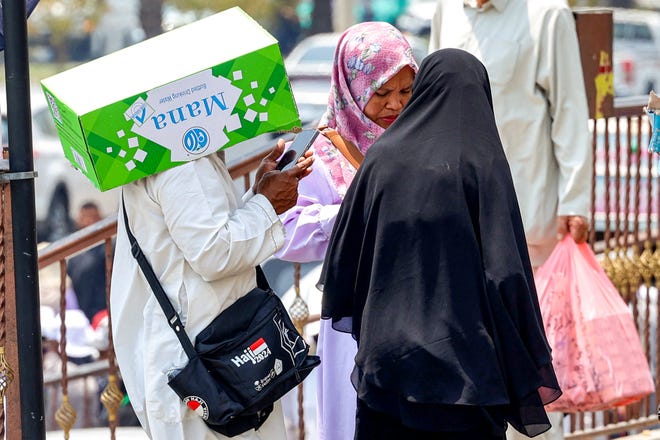The annual Muslim pilgrimage to the holy city of Mecca, which ended last week, became a death march for more than 1,300 hajj participants who died in temperatures exceeding 124 degrees Celsius.
Saudi Arabia’s Health Minister Fahad Al-Jaragel said on Sunday the total death toll had risen to 1,301, but blamed the deaths on pilgrims “walking long distances in direct sunlight without proper shelter or comfort.”
The five- to six-day hike and prayer journey drew nearly two million pilgrims from around the world. Many of the victims were elderly or chronically ill, A Jarajel said. About 83 percent of the victims were people who were not authorized to make the pilgrimage, he said.
“It was incredibly hot and it was only by God’s mercy that I survived,” Nigerian pilgrim Aisha Idris told the BBC.
More than 650 of the dead were Egyptians and at least two were Americans.
The hajj is the fifth pillar of Islam and all Muslims are required to perform the pilgrimage at least once in their lifetime. Maryland residents Aliu Dausi Urie, 71, and his wife Isatou Tejan Urie, 65, spent $23,000 on an all-inclusive travel package through a travel agency registered with the state.
“They’ve worked their whole lives for this,” Saida Urie told CNN.

Maryland couple’s deaths ruled ‘natural causes’
Urie told CNN that her parents were in Saudi Arabia when they learned through a family group chat that the tour company was not providing them with the proper transportation or certificates needed for the pilgrimage. A man who had been on the tour contacted Saida Urie to say her parents were missing on Mount Arafat after her father said he could no longer continue.
Uri said he was later contacted by US consulate officials in Jeddah, who notified him from the Saudi Arabian Ministry of Interior that his parents had died “from natural causes.” Contacted by USA Today, the State Department would say only: “We can confirm the deaths of multiple Americans in Saudi Arabia. We offer our deepest condolences to the families, and stand by to provide all appropriate consular assistance.”

Egypt to prosecute tourism companies
Egyptian authorities said the high death toll was due to the fact that most of them were unregistered pilgrims, some of whom were unable to enter Mecca through official channels using “individual visit visas.”
Prime Minister Mustafa Madbouly ordered the cancellation of the licenses of 16 travel agencies that offered package tours to unregistered Hajj pilgrims, and ordered the transfer of their officials to prosecutors and the imposition of fines on the companies to compensate the families of pilgrims who died.
Jordanian authorities also announced they had detained several travel agents who arranged unofficial trips for Muslim pilgrims.
Hajj heat stroke deaths:500 pilgrims die in Egyptian camps after 124 degree temperatures
Hajj has seen tragedy before
Tragic deaths at the Hajj are nothing new. A crowd stampede in 2015 killed more than 2,200 people, and another in 1990 killed more than 1,400. A crowd stampede four years later killed 270 people. A tent fire in 1997 killed 347 people. In 1998, protests turned violent, leaving 400 pilgrims dead. In 2009, floods killed 77 pilgrims.
Article contributed by Reuters

